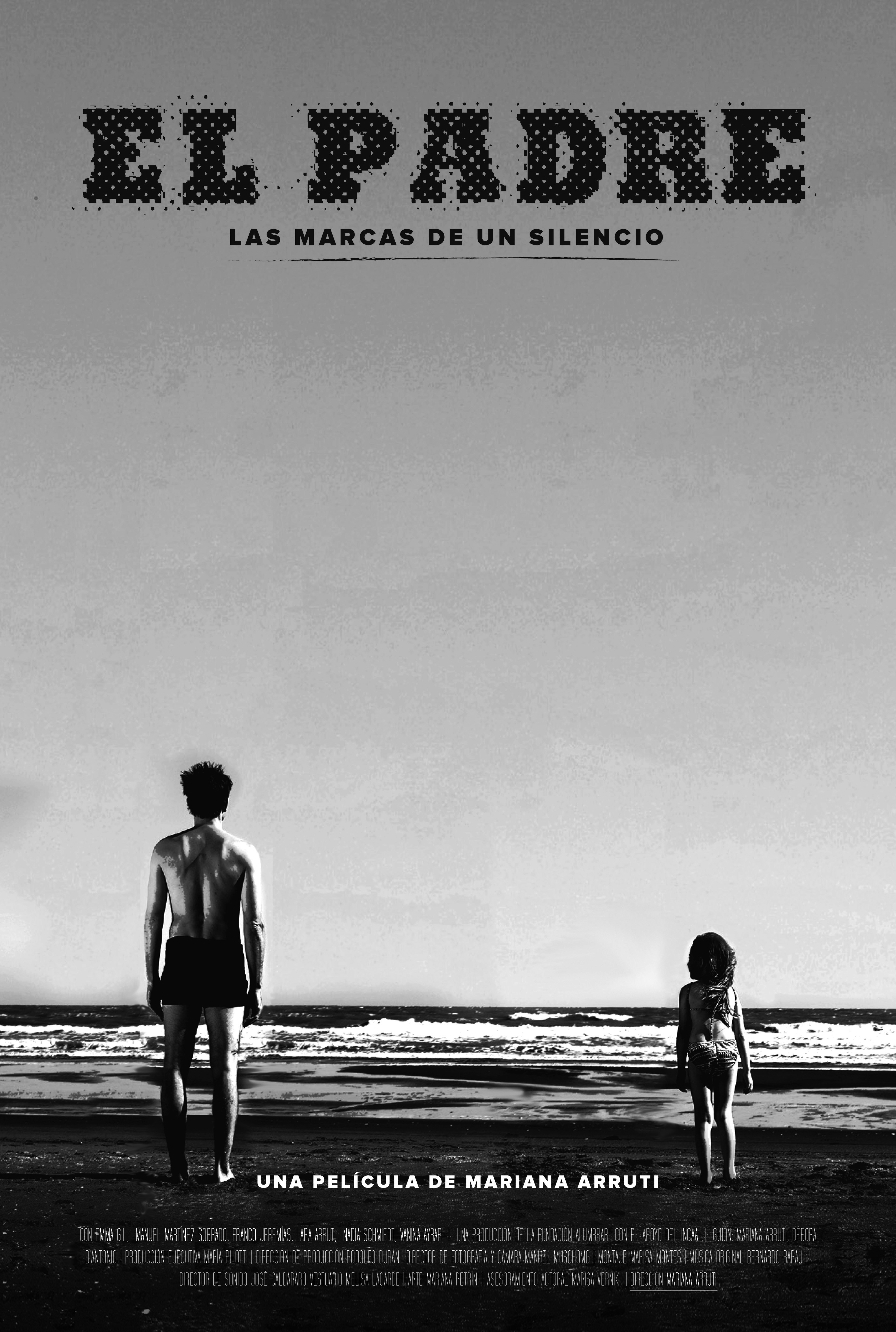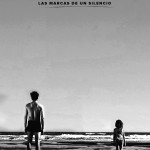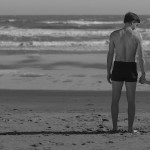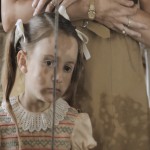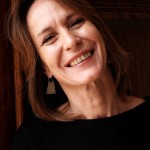The Father
– Technical Info / Información Técnica:
(2016) – 01:11:00 – Argentina, Buenos Aires – HD: Sony PMW F3L / Súper 8mm – 24fps – ratio: 1920 x 1080 pixels – Colour / B&W – NTSC – Sound: Audio ACC Stereo 44,1 KHZ – Data Rate: 3.548 Kbits/seg. 1,8 GB
– Short Synopsis / Sinopsis Corta:
The director of the film starts on a journey, aiming at clarifying the circumstances surrounding the death of her father during her childhood. Learning the fact that he had not died in a train accident mobilizes her to break the silence and she starts questioning the concealed social and family closets environment. This journey allows her to unbury a father whom she will finally start to feel as hers.
La directora de la película inicia un camino para esclarecer las circunstancias de la muerte de su padre, al que perdió en su niñez. Saber que él no ha muerto a raíz de un accidente ferroviario la moviliza a romper el silencio y a cuestionar los ocultamientos del entorno familiar y social más cercano. Este recorrido abrirá un camino para desenterrar a un padre que finalmente ella comenzará a sentir propio.
– Synopsis / Sinopsis:
With more questions than answers, the director of the film starts a journey to clarify the circumstances of her father’s death. Learning the fact that he had not died in a train accident mobilizes her to break the silence and she starts questioning the concealed social and family closets environment. This environment did not just distort the circumstances of his death, but also banned the person from their stories. This path will take her to dig up the character of that man that she lost so young and of whom she knew almost nothing until the beginning of this journey.
Con más preguntas que certezas la directora de la película inicia un camino para esclarecer las circunstancias de la muerte de su padre. Saber que él no ha muerto en un accidente ferroviario, la moviliza a romper el silencio y a cuestionar los ocultamientos del entorno familiar y social más cercano, que no solamente tergiversaron las circunstancias de la muerte, sino que desaparecieron aquella figura del relato de todos. Este recorrido la llevará a desenterrar la figura de aquel hombre que ella perdió siendo muy pequeña y sobre el cual casi nada supo hasta el inicio de este viaje.
– Director´s Biography / Biografía del Director:
MARIANA ARRUTI
Anthropologist and filmmaker. She was a research fellow and a faculty member of the University of Buenos Aires (UBA). She studied cinema direction at the Cinema University (FUC), and film editing with Miguel Pérez. She directed “Los Llamaban los presos de Bragado” (They Were Called the Prisoners of Bragado-1995), “La Huelga de los Locos” (The Strike of Madmen-2000), “Trelew la fuga que fue massacre” (Trelew: The Escape Which Became a Massacre-2004), and the short film “Mate o Leche” (Matte or Milk) from the movie “D-Humanos” (Of Humans-2013). Her films have gotten many prices at the international film festivals. Since 2003, she has worked in the audio-visual archives in the Human Rights Secretariat of Argentina.
Nació en Bs As en 1969. Antropóloga y cineasta. Fue becaria de investigación y docente en la Universidad de Buenos Aires. Estudió dirección de cine en la Universidad del Cine, y montaje con Miguel Pérez. Dirigió los films “Los Llamaban los presos de Bragado” (1995), “La Huelga de los locos” (2000), “Trelew, la fuga que fue masacre” (2004) y el cortometraje “Mate o Leche” de la película “D-Humanos” (2013). Sus films han obtenido numerosos premios en festivales internacionales de cine. Trabaja desde 2003 en gestión de archivos audiovisuales en la Secretaria de Derechos Humanos de la Nación Argentina.
– Director’s Statements / Declaraciones del Director:
The film poses a reconstructive journey in which I get involved speaking in the first person, to investigate the circumstances of my father’s death whom I lost while being a child. Even though this journey leaves many open questions, the visual work with images and its articulation with words, allows me to act out a path where it is possible for me to find my father and feel that he belongs to me for the first time. With many different types of records (audio-visual and photographic, interviews, fiction and reconstruction Super-8) and various supports (video HD and Super-8), the film seeks to restore fragments from the past linking them to the present moment of my research. On one hand, there are pieces of my childhood daily life with my father and of the time immediately after his death, separated by silence. These records were made with the camera in hand, looking to find a similar aesthetics as the homemade videos of the beginning of the 70’s. The moving camera expresses the opposite of stable and finished, allowing visualization of a story in the making, and expressing the inner memories of the story-teller. A second type of record made in black and white video HD represents the reconstruction of what I can imagine today about my father’s childhood. That childhood in the countryside tries to show poetically and metaphorically the man my father was as an adult. In contrast to the clips that reconstruct my childhood, we used, in staging and editing, another concept of time, slow and paused. Also, during this reconstructive journey, I encounter many different people with whom I chat about my father. Those sequences focus on everyone’s emotions. For them, for me, it is the first encounter after 40 years, and for the first time many very intense things will be said. The photos from the family archives do not have a descriptive purpose, except for the fact that they connect the experience of meeting the fainted father I am looking for, who will gradually come to life between images and tales. Finally, the soundtrack of this film tries to stitch a poetic expression which searches through words, sound effects and music, quilting inner sensations, breaking the conceptual unity between sound and image and resetting my vision as director and daughter, of a silenced passed.
La película plantea un recorrido reconstructivo en el que me embarco desde mi voz en primera persona, para indagar en las circunstancias de la muerte de mi padre a quien perdí siendo muy niña. Aunque este recorrido deja muchas preguntas abiertas, el trabajo plástico con la imagen y su articulación con la palabra, me permite sin embargo expresar un camino en el que me es posible encontrar a mi padre y sentirlo propio por primera vez. A partir de diferentes tipos de registros (audiovisual y fotográfico, entrevistas, ficción y reconstrucción súper 8 y de diversos soportes (video HD y súper 8), la película busca reponer fragmentos del pasado enlazándolos con el tiempo presente de mi búsqueda. Por un lado se reconstruyen tramos de mi infancia en la vida cotidiana junto a mi padre y del tiempo inmediatamente posterior a su muerte, atravesado por el silencio. Estos registros se realizaron cámara en mano, buscando una estética asimilable a los registros caseros de los primeros años de la década del 70. La cámara en movimiento expresa lo opuesto a lo estable y concluido permitiendo visualizar una historia en construcción, y expresando los recuerdos interiores de quien está contando la historia. Un segundo tipo de registro realizado en video HD en blanco y negro, reconstruye lo que puedo imaginar en el presente acerca de la infancia de mi padre. Esa infancia en el campo, busca expresar poética y metafóricamente a ese hombre que fue mi padre en la adultez. En contraposición a los planos que reconstruyen mi infancia, aquí utilizamos en la puesta y en el montaje, un concepto de tiempo lento y pausado. Este viaje reconstructivo, me lleva además al encuentro con diversas personas con las que converso sobre mi padre. En esas secuencias se ponen en foco las emociones de todos. Tanto para ellos como para mí, se trata del primer encuentro luego de cuarenta años, en los cuales muchas cosas intensas serán dichas por primera vez. En relación a la inclusión de fotos de archivo familiar, las mismas no intervienen en el film con un propósito descriptivo, sino que van acompañando y enlazando la experiencia de encuentro con ese padre desdibujado a quien busco, quien va tomando carnadura poco a poco entre las imágenes y los relatos. Por último, la banda sonora de esta película propone construir una expresión poética que busca a través la palabra, los efectos sonoros y la música, construir las sensaciones interiores, quebrar la unidad conceptual entre el sonido y la imagen, y reponer mi mirada como directora y como hija, hacia un pasado silenciado.
– Overview / Ficha Técnica:
Producer / Productor: Rodolfo Durán
Executive Producer / Productor Ejecutivo: María Pilotti
Screenplay / Guión: Mariana Arruti, Débora D’Antonio
Director / Dirección: Mariana Arruti
Art Director / Dirección de Arte: Mariana Petrini
Costume / Vesturio: Melisa Lagarde
Cinematography and Camera / Dirección de Fotografía y Cámara: Manuel Muschomg
Sound Director / Director de Sonido: José Caldararo
Sound / Sonido Directo: Luciana Braga
Edditing / Montaje: Marisa Montes
Original Music / Música Original: Bernardo Baraj
– Cast / Elenco:
– Festivals, Awards and Nominations / Festivales, Premios y Nominaciones:
– EDOC, Festival Internacional de Cine Documental ‘Encuentros del Otro Cine’; Ecuador; 05/2016.
– Links:
Web: www.elpadrefilm.com
Trailer: https://vimeo.com/141500980
Facebook: https://www.facebook.com/elpadrefilm/
Twitter: @elpadrefilm
Notas:
– Contact / Contacto:
Gisela Chicolino
María Pilotti
Fundación Alumbrar
fundacionalumbrar@yahoo.com.ar
